




英文听力材料中的数字涵盖号码、年龄、人数、日期、时间、价格、大小、重量、高度等内容。考生需要掌握一些英文数字的读音规律,并有针对性地反复练习,有目的性地大声朗读并辅以手写练习。考生需注意在练习的过程当中一定要做到口、耳、眼、手并用。除了用一些近音、近形的数字来混淆考生,考查考生对数字的辨别能力外,试题中也有一部分计算题,需要考生对听到的数字进行简单的计算,而这些数字之间存在一定的关系。在听材料时考生除了要正确识别数字,还要捕捉数字间的关系,并据此进行准确的演算。
数字识别的关键是区分容易混淆的近音和近形数字。如thirteen和thirty,one和nine,eight和A,等等。这需要考生在平时的练习中对这些数字的发音进行反复练习。此外,还需注意数字间的短暂停顿现象(如电话号码中的国家代码、区号和本地号码间的停顿)、数字间的连读现象(前词尾音弱读),以及特殊的数字表达方式,如double在电话号码中表示两个相同的数字,224655,读作double two four six double five.
数字的识别还需要考生了解一些关于分数、小数、百分比、价格、日期以及时间表达的基本方法。
分数:1 /3 读作one third;3 /5 读作three fifths
小数:0.128 读作zero point one two eight; 33.36 读作thirty three point three six
百分比:83%读作eighty three percent; 29%读作twenty nine percent
价格:dollar:美元; buck:美元; quarter: 25 美分; dime: 10 美分; nickel: 5 美分;cent:美分; penny:便士; pound:英镑
日期:2019 年 9 月 30 日读作September the thirtieth two thousand and nineteen 在 19 世纪 40 年代读作in the eighteen forties 十年为decade;百年为century 每隔一天为every other day或every two days 前天为the day before yesterday或two days ago;后天为the day after tomorrow或two days later 两星期为fortnight
时间:6:00 读作six (o’clock)(sharp);6:10 读作ten past six或six ten; 6:15 读作a quarter past six或six fifteen; 6:30 读作half past six或six thirty; 6:45 读作a quarter to seven或six forty-five; 6:55 读作five to seven或six fifty-five;00:25 读作twenty-five past /after midnight
You will hear:
Man:Hello, my name is Carlson.I believe you have a room booked for me.
Woman:Oh, yes, Mr.Carlson.It’s a double room with a bath, Room No.3450.
Man:But I booked a single room with a shower.Did you make a mistake?
Woman:Sorry, Mr.Carlson.You can go to the Room 3215.I hope it will suit you, sir.
Question: What is the room that Carlson has booked?
You will read:
A.Room 3415.
B.Room 3450.
C.Room 3215.
D.Room 3250.
此题主要考查考生对 15 和 50 的读音区别,是一道典型的近似音判断题。男士预订的是一间带淋浴的单人房Room 3215,答案为C。
You will hear:
Woman:Have you ever heard the final call for Air France to Paris Flight Number FA550 now boarding at gate 4?
Man:Oh, really? But my Flight Number is FT455 which is supposed to board at gate 7.
Question: Which flight is the man going to take?
You will read:
A.FA500.
B.FT455.
C.FT415.
D.FA550.
这是一道事实判断题,仍然是考查对相似读音fifty和fifty-five的区别。试题要求考生在短时间里抓住航班号信息,这需要考生平时了解航班号的拼写规律。男士的航班号为FT455,故答案为B。
在听力考试中,单纯的数字辨认题并不多,更多的是数字计算类题目。在这类题目中,考生不仅要识别数字,还要洞悉数字之间的关系。通常情况下,表达加减含义的题目是通过类似more, less, fast, slow, before, after, late, early等形容词或副词来表达,而表达乘除含义的题目是通过倍数、分数、百分比等词来加以表述的。如:
A is N times as large as B,A is N times larger than B,A is larger than B by N times均表示A的大小是B的N倍,或A比B大N-1 倍。
数字计算类题目涉及距离、人口、价格、时间等方方面面。
You will hear:
Man:How many students took the final exam on January 8?
Woman: Well, I believe that we had twenty-three students from Class One, twenty-four students from Class two and twenty students from Class Three.
Question: How many students altogether did the woman believe had taken the final exam?
You will read:
A.67 students.
B.43 students.
C.23 students.
D.24 students.
此题是一道连续加法题,因为题目中关键词是altogether,即参加期末考试的学生总人数,所以 23 加 24 再加 20 就能得出答案A。
You will hear:
Woman: Your cousin graduated in 2016.What about you?
Man:I finished school a year later.
Question: When did the man graduate?
You will read:
A.2015.
B.2016.
C.2017.
D.2018.
本题的解题关键为later一词。男士比表弟晚毕业一年,故正确答案应为C项。
You will hear:
Woman:Excuse me, could you tell me when the next train to Chongqing is?
Man:Sure.It’s three now.The next train to Chongqing leaves in two hours.But you can take a train to Chengdu, which leaves in 15 minutes, and then get off at Chongqing because it stops at Chongqing on the way.
Question:At what time does the train to Chengdu leave?
You will read:
A.5:00.
B.3:15.
C.3:00.
D.2:00.
本题中男士建议女士搭乘去成都的列车,中途在重庆下车。由于现在时间为 3 点,去成都的列车 15 分钟后出发,故正确答案应为B项。
You will hear:
Man:I’d like to buy these four Thanksgiving cards.Are they fifty cents each?
Woman: Three of them are, but the smaller one is only a dime.
Question: How much are the cards all together?
You will read:
A.$1.6.
B.$1.75.
C.$1.55.
D.$2.
男士想买四张感恩节贺卡,前三张 50 美分一张,第四张需要 10 美分。如果知道a dime是10 cents,那么这道题就很容易得出A这个答案了。
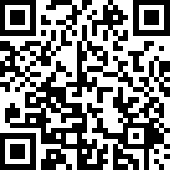
Directions: In this section, you will hear 8 short conversations.At the end of each conversation, a question will be asked about what was said.Both the conversation and the question will be spoken only once.After each question there will be a pause.During the pause, you must read the four choices marked A, B, C and D, and decide which is the best answer.
1)A.17:45.
B.17:15.
C.16:45.
D.16:15.
2)A.25.
B.27.
C.34.
D.18.
3)A.The No.7 bus.
B.The No.9 bus.
C.The No.12 bus.
D.The No.10 bus.
4)A.$45.
B.$90.
C.$180.
D.$270.
5)A.1080.
B.540.
C.2160.
D.270.
6)A.$14.
B.$7.
C.$8.
D.$15.
7)A.20 minutes.
B.25 minutes.
C.50 minutes.
D.55 minutes.
8)A.By December 30.
B.By January 1.
C.By December 3.
D.By December 13.
Directions: In this section, you will hear 2 long conversations.At the end of each conversation,some questions will be asked about what was said.Both the conversation and the questions will be spoken only once.After each question there will be a pause.During the pause, you must read the four choices marked A, B, C and D, and decide which is the best answer.
A.Pair Work
Directions: Please discuss the following questions with your partner.

1)Do you have any specific plans for your college study?
2)Some people say life is hard, and we should prepare for our future by setting realistic goals.Do you agree? Why or why not?
B.Listening
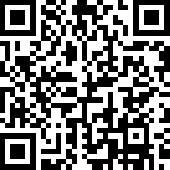
Directions: First study the words and expressions in the table below.Then listen to the conversation and select the best answer to each question.

1)A.She worked part-time during her school years.
B.She won several scholarships every year.
C.She asked her father to help her pay the tuition.
D.She borrowed some money from her friends.
2)A.She wants to work in her father’s business after graduation.
B.She wants to take a training class in business administration.
C.She wants to seek interview chances from some companies.
D.She wants to continue her study in a famous graduate school.
3)A.The woman is dating the man’s business teacher.
B.The man’s business class teacher is the woman’s father.
C.The man is speaking ill of his new business teacher.
D.The man and woman are actually long-lost relatives.
4)A.In a campus cafe.
B.In a college dormitory.
C.At the school library.
D.In a university classroom.
A.Group work
Directions: Please discuss the following question in small groups.
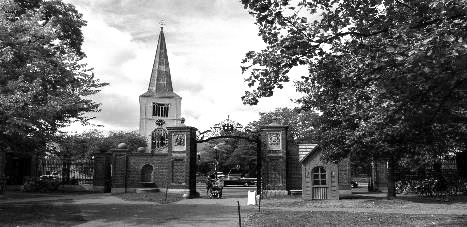
What can a college student do to enrich his/her life? Some ways are listed as follows:
 Participating in different school activities
Participating in different school activities
 Doing a part-time job
Doing a part-time job
Now work in small groups and try to find out some other ways.
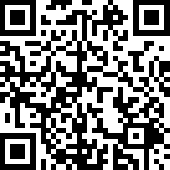
B.Listening
Directions: First study the words and expressions in the table below.Then listen to the conversation and select the best answer to each question.

5)A.Because she thinks the activity is too demanding physically.
B.Because she does not think she is any good at the activity.
C.Because she does not have enough time.
D.Because she is not sufficiently challenged.
6)A.The seminars make him feel inferior to the other students.
B.The preparation for seminars takes too much time.
C.The other students do not give him a chance to speak.
D.He wishes they had more seminars.
7)A.His tutor is very helpful.
B.His tutor is very demanding.
C.He doesn’t seem to get useful advice from his tutor.
D.He was asked by his tutor to read a productive book.
Directions: In this section, you will hear 3 news reports.At the end of each report, you will hear some questions.Both the report and the questions will be spoken only once.After you hear a question, you must choose the best answer from the four choices marked A, B, C and D.
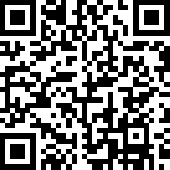

1)A.Freshmen who can swim for 50 meters.
B.Freshmen who can swim with one of the strokes.
C.Freshmen who can swim with four main strokes.
D.Freshmen who suffer from lung diseases.
2)A.Because of the lack of facilities.
B.Because of the lack of coaches.
C.Because of the lack of money.
D.Because of the lack of a swimming pool.
3)A.The sporting tradition of Tsinghua University should be promoted.
B.More swimming pools and coaches are needed at Tsinghua University.
C.Swimming courses would become compulsory at Tsinghua University.
D.Students at Tsinghua University are encouraged to do more sports.
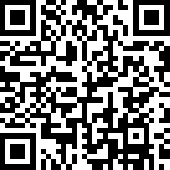

4)A.They are impractical.
B.They are unfair.
C.They are reasonable.
D.They are profitable.
5)A.Because they can graduate more students.
B.Because they prefer students of college-educated parents.
C.Because they can raise more money.
D.Because they favor children of previous graduates.
6)A.Private schools’ persistence in legacy admissions.
B.Top universities’ objection to legacy admissions.
C.The traditional policy of school admissions.
D.Opinions for and against legacy admissions.
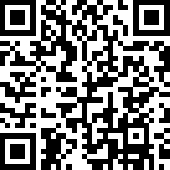

7)A.An introduction to Coursera.
B.The origin of Coursera.
C.Different attitudes towards Coursera.
D.The impact of COVID-19 pandemic on Coursera.
8)A.In 2020.
B.In 2002.
C.In 2012.
D.In 2014.
9)A.Over 200.
B.Over 6,000.
C.Over 3,000.
D.Over 4,500.
10)A.Because they can spend less money on online classes.
B.Because they can invest less time in online classes.
C.Because the classes can help them gain recognized certificates.
D.Because the classes can satisfy their desire for learning knowledge.
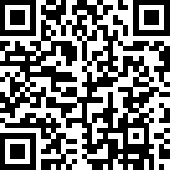
Directions: In this section, you will hear a lecture.At the end of the lecture, you will hear some questions.Both the lecture and the questions will be spoken only once.After you hear a question, you must choose the best answer from the four choices marked A, B, C and D.

1)A.Host.
B.Friend.
C.Holiday.
D.Hallway.
2)A.In 1638.
B.In 1630.
C.In 1613.
D.In 1678.
3)A.Lamont Library.
B.Yenching Library.
C.Library of Congress.
D.Widener Library.
4)A.The libraries provide free snacks for students.
B.The libraries are open from 9 a.m.to 10 p.m.
C.The libraries prepare reading materials for all courses.
D.The libraries are open all night during the exam period.
5)A.Because readers in the suburb can benefit.
B.Because the space for the library is limited.
C.Because students enjoy reading in the suburban library.
D.Because librarians enjoy working in the suburban library.